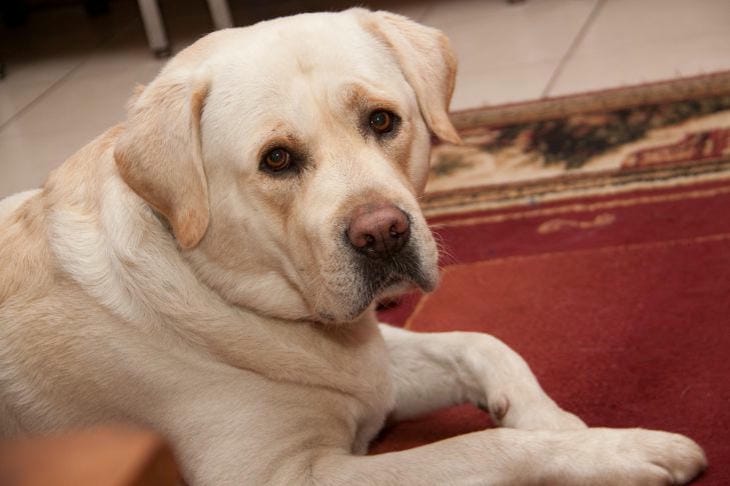The question of keeping a large dog in the limited space of an apartment worries many animal lovers.
The stereotype that large dogs need the space of a country house is gradually being debunked.
Reality shows that with the right approach, even a large dog can be happy in a small city apartment.
Selecting a breed
Choosing the right breed is considered a key factor in successfully keeping a large dog in an apartment.
Some large breeds, contrary to popular belief, adapt well to life in confined spaces.

Greyhounds, despite their size, are known as "couch potatoes" due to their calm nature. Mastiffs and St. Bernards are also good apartment dogs because they don't require much exercise.
Organization of space
Proper organization of living space plays a crucial role in the comfortable maintenance of a large dog.
Giving your dog his own corner with a bed, toys and a water bowl helps create a sense of personal space.
It is important to remove all valuable and fragile items from the floor to avoid accidental damage from the tail or paws of a large pet.
Physical activity
Regular walks and exercise are a must for keeping a large dog in an apartment.
Long walks twice a day, active games and training of new commands help the dog to expend energy and stay in good physical condition. Visiting dog parks and parks also helps to socialize the pet.
Mental stimulation
Mental activity is equally important for large dogs living in confined spaces.
Interactive toys, dog puzzles, and trick training help prevent boredom and destructive behavior. Regular dog training not only develops your dog’s intelligence, but also strengthens the bond between pet and owner.
Hygiene and care
Maintaining cleanliness when keeping a large dog in an apartment requires special attention.
Regular brushing of the fur, timely washing of paws after walks and cleaning of fur help to keep the apartment clean.
Using special mats at the entrance and regularly trimming claws also help maintain hygiene.
Proper nutrition
Balanced nutrition plays an important role in the health and behavior of a large dog.
Portion control and choosing food that is appropriate for your dog's size and activity level can help prevent obesity, which is especially dangerous for large breeds in confined spaces.
Socialization and training
A well-trained and socialized dog adapts to apartment life more easily. Attending training courses or working with a dog trainer helps teach the dog basic commands and rules of behavior in the house.
Socialization with other dogs and people is also important to help develop a balanced character in your pet.
Legal aspects
Before you bring a large dog into your apartment, you should familiarize yourself with the rules of living in an apartment building and local laws regarding keeping animals.
Some housing complexes may have restrictions on the size or breed of dogs. Respect for your neighbors and adherence to the rules of the community will help avoid conflict situations.
Taking into account individual characteristics
Every dog, regardless of breed, has a unique character.
Careful observation of your pet's behavior and consideration of its individual needs will help create comfortable conditions even in a small apartment.
Being willing to devote time and attention to your four-legged friend is the key to successfully keeping a large dog in an urban environment.








